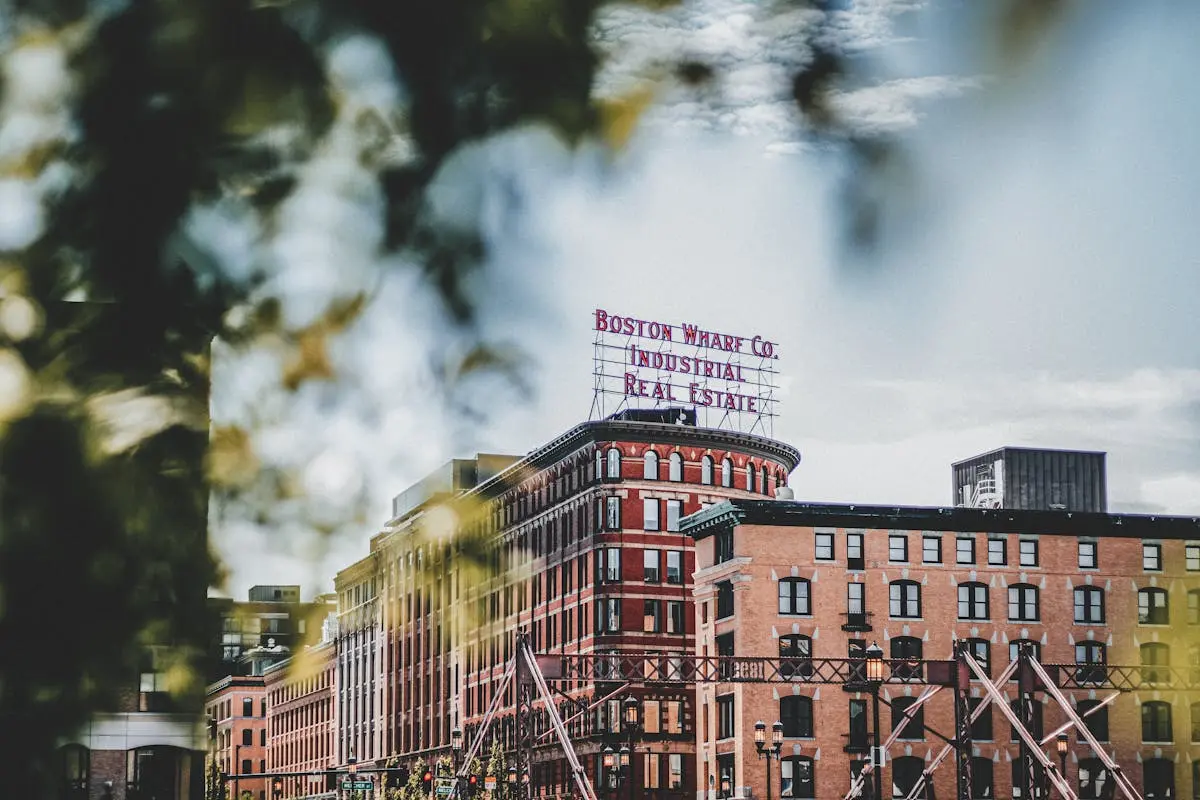Understanding the Boston Housing Market: A Beginner’s Guide
The Boston housing market can be complex, but don’t let that intimidate you. First thing’s first – it’s a competitive arena, often with multiple offers on homes. This means preparation is key. Prices vary widely based on the neighborhood. For instance, Back Bay and Beacon Hill are on the pricier end, while areas like Dorchester and Roslindale are more budget-friendly. Also, bear in mind, the closer you are to the city center or public transportation, the higher the price tends to be. Another critical point is the type of property you’re looking at. Condos, single-family homes, and multi-family homes have different price points and availability. Lastly, seasons affect the market too. Spring and fall are the busiest, with more listings available, whereas winter can offer less competition but also fewer options. Knowing these aspects can give you a solid starting point for navigating your homebuying journey in Boston.
Key Factors Influencing the Boston Housing Market Today
Boston’s housing market is hot, but navigating it needs some know-how. First, supply and demand drive this market. More people want homes than there are available, pushing prices up. The location is king in Boston. Homes in trendy neighborhoods like Back Bay or the South End often come with a premium price tag. Interest rates also play a crucial role. Lower rates can make loans cheaper, but they can also heat up the competition. Lastly, the local economy is strong, thanks in part to tech and education sectors. This strength attracts more people, further fueling the housing demand. Understanding these factors can give you an edge in finding your first home in Boston.
Setting a Realistic Budget for Your First Home in Boston
Setting a budget before you start looking for a house in Boston is crucial. The idea isn’t just about how much you can borrow; it’s also about how much you can comfortably afford month to month. Start with your income. How much do you bring home? From there, account for your monthly expenses — think groceries, utilities, car payments, or any other regular bills. A good rule of thumb is the 28⁄36 rule. This means no more than 28% of your gross monthly income should go towards housing expenses, and not more than 36% should be dedicated to total debts, including your future mortgage. Boston’s housing market can be pricey, with median home prices significantly above the national average. So, having a clear budget helps you avoid falling for a home outside your financial comfort zone. Remember, apart from the mortgage, you’ll need to cover property taxes, home insurance, and possibly homeowner association fees, not to mention maintenance costs. Approach this with a clear head and a realistic perspective. Your first home in Boston doesn’t have to be your forever home. Think of it as a step toward your dream home, within a budget that won’t stretch you too thin.
Essential Tips to Save for a Down Payment in the Boston Area
Saving for a down payment in the Boston area might seem like climbing a mountain, but it’s definitely doable with the right approach. First-time homebuyers should focus on setting a clear savings goal. Find out how much you need by considering the average home prices in Boston. Typically, aim to save 20% of the home’s cost for a down payment. This might sound hefty, but it’s the best way to avoid private mortgage insurance, which adds to your monthly payments. Start by reviewing your budget. Cut down on unnecessary expenses and think about increasing your income through side gigs or overtime. Open a savings account specifically for your down payment, and automate transfers to make saving easier. Consider also any first-time homebuyer programs in Boston that offer assistance with down payments. Lastly, patience is key. Saving takes time, but it’s the first big step towards owning your home in the Boston area. Stick with your plan, and you’ll get there.
Finding the Right Neighborhood in the Boston Housing Market
When diving into the Boston housing market, picking the right neighborhood is crucial. It’s not just about the house, but also where it’s located. Boston’s diverse neighborhoods offer a mix of cultural, recreational, and educational amenities. Start by deciding what’s important to you. Do you crave a vibrant nightlife, or are you looking for a quiet, family-friendly area? Perhaps access to parks or public transportation is a top priority. Dorchester offers diversity and an array of dining options, while Back Bay provides high-end shopping and historical architecture. If you’re leaning towards a cozy, small-town vibe, consider Somerville or Cambridge. However, don’t just rely on descriptions. Visit these neighborhoods. Walk around, talk to locals, and get a feel for the community. Remember, your choice of neighborhood will impact your lifestyle and daily commute. So, take your time and choose wisely. Finding the right fit can make your home buying experience in Boston a dream come true.
Navigating Mortgage Options for First-Time Homebuyers in Boston
Navigating mortgage options is a crucial step for first-time homebuyers in Boston. Start by understanding that you’re not just looking for a house but also a loan that fits your financial situation. In Boston, the housing market can be competitive, making it even more important to get your mortgage sorted out early. First up, know the types of mortgages available. Fixed-rate mortgages keep your interest rate the same for the entire loan period, ideal if you plan on staying put for a long time. Adjustable-rate mortgages might offer lower initial rates, but be wary, the rate can change based on market conditions. Boston buyers, especially, should consider MassHousing loans, which are designed for low- and moderate-income residents, offering low down payment options. Don’t forget to shop around. Different lenders offer different rates and terms. Pre-approval can be a game-changer, showing sellers you’re serious and have the funds ready. Lastly, consider the long-term. Think about how much you can comfortably afford monthly, taking into account not just the mortgage but also property taxes, insurance, and maintenance. Boston’s market is hot, but with the right mortgage, you’ll be ready to dive in.
The Importance of Home Inspections and Appraisals in Boston
In the Boston housing market, diving into a purchase without a home inspection and appraisal is like sailing in fog without a compass; risky and not recommended. Home inspections are your safeguard, enabling you to see beyond a property’s surface charm. They reveal hidden issues like electrical faults, plumbing leaks, or structural damage, potentially saving you thousands in unforeseen repairs. An inspector examines the house from foundation to roof, spotlighting problems that could require costly fixes or even pose health risks.
Equally critical is a property appraisal. This step determines the home’s market value, ensuring you don’t pay more than it’s worth. Lenders require appraisals for this very reason. In Boston’s competitive market, where bidding wars can inflate prices, an appraisal safeguards your investment, preventing you from overpaying.
Both these steps provide a clear-eyed evaluation of the property’s condition and value, empowering you to make informed decisions. Skipping either could leave you vulnerable to overlooked defects or financial losses. So, consider them non-negotiables in your home-buying journey in Boston.
Negotiating Your Home Purchase in the Competitive Boston Market
In the Boston housing market, prices can be steep, and competition fierce. But there’s room to negotiate, even for first-time buyers. Start by researching the current market. Understand what homes are going for in your desired neighborhood. This knowledge is power. Use it to your advantage. Next, don’t shy away from asking for what you want. Whether it’s a lower price, repairs to be made, or closing costs to be covered, the worst they can say is no. Remember, your offer should be fair but assertive. Show you’re serious with a solid down payment, but keep a little back. You’ll need flexibility for counteroffers. Finally, a real estate agent familiar with Boston’s fast-paced market can be invaluable in navigating these negotiations. They’ve got experience and negotiation skills that can tip the scales in your favor. Don’t rush, but be ready to move quickly. The right home at the right price is out there. Keep calm, negotiate smart, and you just might snag your Boston dream home.
Closing the Deal: Steps to Finalize Your First Home Purchase in Boston
Finalizing your first home purchase in Boston might seem like a mountain to climb, but it really comes down to a series of steps. First, make sure your loan approval is solid, and your budget is ironclad. Boston’s market waits for no one, and you want to be ready to move when you find the right place. Next, get a home inspection. This is not the step to skip. You don’t want surprises with your Boston abode after the papers are signed. After inspection, negotiate any repairs or credits with the seller. Be straightforward but flexible; it’s about finding a solution that works for both sides.
The last few steps involve a bit of paperwork. You’ll work with your real estate agent to submit any final documents. Then, get ready for closing day. This is when you’ll sign a lot of paperwork, but it ends with the keys to your new home in your hand. Remember, you’ll also need to pay closing costs, which in Boston, can range from a few to several thousand dollars depending on the sale price and negotiations. So, budget wisely throughout the process. By following these steps, you’ll navigate the Boston housing market like a pro and close the deal on your first home. Keep things simple, stay informed, and before you know it, you’ll be stepping through the door of your new Boston home.
Post-Purchase Advice for New Homeowners in the Boston Area
Once you’ve got the keys in hand, the real journey begins. First off, save a little each month for repairs and maintenance. You never know when the boiler might decide to retire or the roof will adopt a leak. Register for all essential utilities and update your address everywhere – think driver’s license, voter registration, and subscriptions. Meet your neighbors. They’re not just folks next door; they’re your go-to for local tips and might even lend you a lawn mower when yours conks out. Plus, getting involved in your community makes your neighborhood a better place to live. Don’t rush into major renovations. Live in your new Boston home for a few months, understand its flow, and then decide what changes are truly necessary. Lastly, make it yours. Hang pictures, paint walls, and plant flowers. This isn’t just a property you bought; it’s your home now. Remember, taking care of a home is an ongoing process, but it’s also part of the joy of homeownership in the Boston area.

